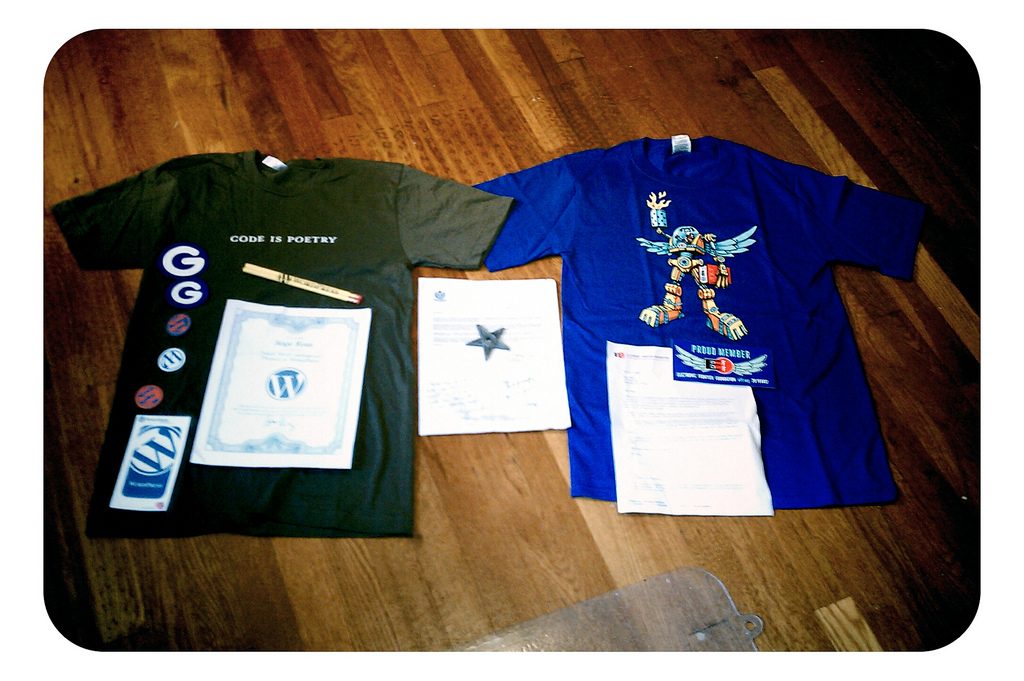From a New York Times article, “Plagiarism Lines Blur for Students in Digital Age“:
…these cases — typical ones, according to writing tutors and officials responsible for discipline at the three schools who described the plagiarism — suggest that many students simply do not grasp that using words they did not write is a serious misdeed.
It is a disconnect that is growing in the Internet age as concepts of intellectual property, copyright and originality are under assault in the unbridled exchange of online information, say educators who study plagiarism.
Digital technology makes copying and pasting easy, of course. But that is the least of it. The Internet may also be redefining how students — who came of age with music file-sharing, Wikipedia and Web-linking — understand the concept of authorship and the singularity of any text or image.
Remixing, building on the work of others, collaborating (often anonymously), challenging the very premise of intellectual property… these are all happening. And yes, the web makes plagiarism easier than ever to conduct (and to discover). But is student plagiarism really coupled with changing conceptions of authorship?
I haven’t seen much evidence of that. In the NYT article, I see instead people using plagiarism to attack values and ideas they don’t like. For example, anthropologist Susan D. Blum, author of My Word!: Plagiarism and College Culture:
She contends that undergraduates are less interested in cultivating a unique and authentic identity — as their 1960s counterparts were — than in trying on many different personas, which the Web enables with social networking.
“If you are not so worried about presenting yourself as absolutely unique, then it’s O.K. if you say other people’s words, it’s O.K. if you say things you don’t believe, it’s O.K. if you write papers you couldn’t care less about because they accomplish the task, which is turning something in and getting a grade,” Ms. Blum said, voicing student attitudes. “And it’s O.K. if you put words out there without getting any credit.”
So plagiarism is a way to cast changing concepts of authorship and originality (and the politics of free culture that go with that) as moral failings.
 I got a trio of nice packages in the mail today, from Automattic, the Wikimedia Foundation, and the Electronic Frontier Foundation.
I got a trio of nice packages in the mail today, from Automattic, the Wikimedia Foundation, and the Electronic Frontier Foundation.